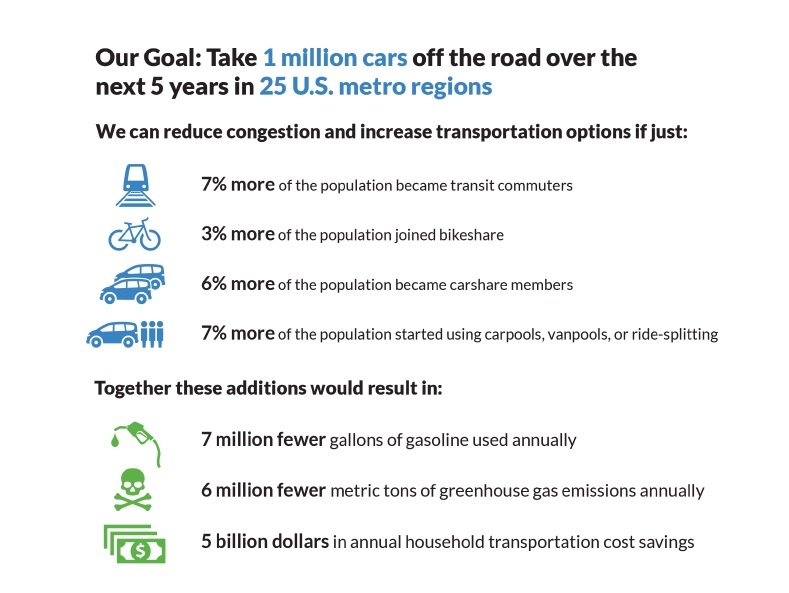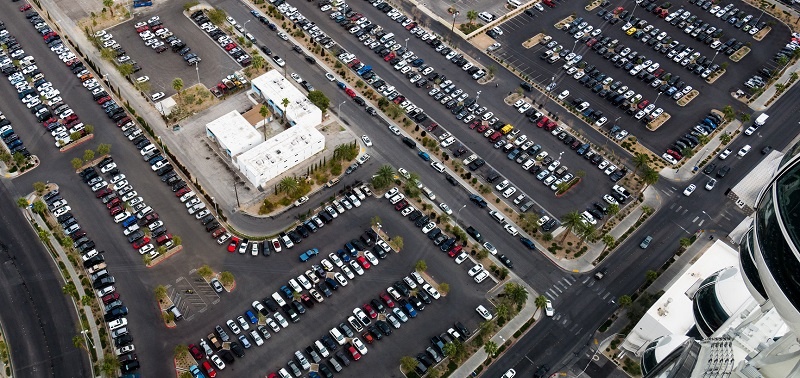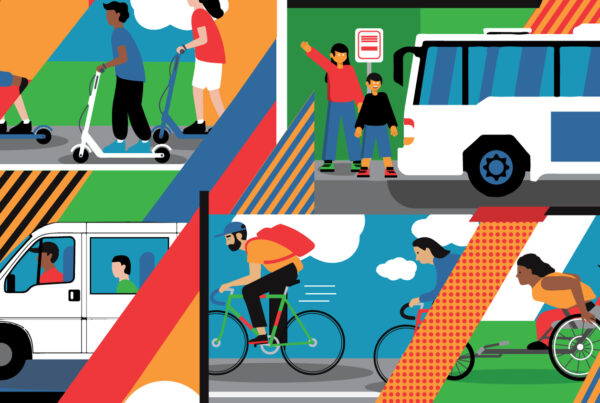Transportation has become the number 1 source of carbon pollution in the United States. It is the second largest expense for most families after housing. And lack of reliable access to a car, bus or train is one of the biggest barriers to employment for Americans today.
New forms of shared mobility—such as bikesharing, carsharing, ride-hailing and microtransit—offer new opportunities to address some of the most critical issues facing society today.
In combination with public transit, shared mobility is a powerful tool that cities can use to help reduce transportation costs, lessen air pollution and expand access to jobs, opportunity and a better quality of life. But to fully realize these benefits—and to truly address poverty, climate change and racial inequality—these new modes must work for everyone.
That’s why the Shared-Use Mobility Center is focused on bringing together the public sector, private industry and local communities to forge partnerships, develop resources and advance new solutions.
To focus our efforts we set an ambitious goal: take 1 million cars off the road in the U.S. over the next five years by scaling up shared mobility and public transit. Here’s how: By working together, we believe cities across the nation can help reduce reliance on private automobiles and increase access to environmentally sound, cost-effective transportation options for all.
By working together, we believe cities across the nation can help reduce reliance on private automobiles and increase access to environmentally sound, cost-effective transportation options for all.
Interested in learning more about SUMC’s work? Check out our FY 2016 Annual Report for information on our latest projects, theory of change and more. You can also keep up to date on SUMC’s latest activities by signing up for our weekly newsletter, the Mobility Hub.


